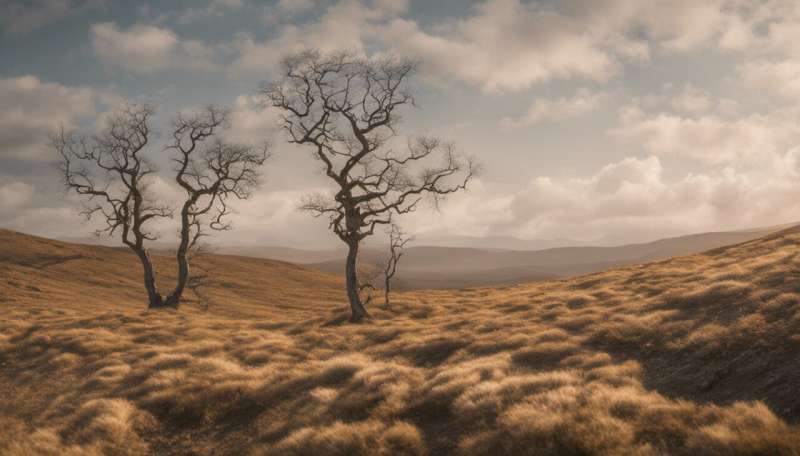Psychotherapist: What I've learned from listening to children talk about climate change

Eco-anxiety is likely to affect more and more people as the climate destabilizes. Already, studies have found that 45% of children suffer lasting depression after surviving extreme weather and natural disasters. Some of that emotional turmoil must stem from confusion – why aren't adults doing more to stop climate change?
Talking with children gives a fresh perspective on the absurdity of doing so little about climate change, but it also exposes a troubling disconnect between what we say and what we do.
Adults are often guilty of cognitive dissonance when it comes to climate change. The UK parliament declares a climate emergency after voting to expand an airport. Scientists conclude that the Amazon rainforest is one of the world's best assets for storing climate-warming gases while large swathes of it are burnt deliberately to make room for methane-belching cattle. A vast coal mine is approved near Australia's Great Barrier Reef while its condition is downgraded from "poor" to "very poor."
Perhaps young people are simply less cynical and more capable of seeing clearly how irrational these decisions are. When I interviewed teenagers in the Maldives, one said: "We saw online that people in Iceland held a funeral for a glacier today, but who is going to do that for us? Don't they see that we will be underwater soon and our country will be gone? No one cares. How can you grieve for ice and ignore us?"
Because of sea level rise, people in the low-lying Maldives have more to fear from climate change than most. The sense of injustice that young people felt here was palpable. "Climate change is like Thanos, wiping out half the world so the rest can survive … we are being sacrificed."
There's moral clarity in the things young people say about climate change, but even at their age, there's a weariness. After all, young people use social media and are bombarded with bad environmental news as much as adults. Some may begin to normalize the mass extinctions they read about. A 10-year-old in the UK told me "It's normal for us now to grow up in a world where there will be no polar bears, that's just how it is for us now, it's different than it was for you."
My dilemma was in trying talk to children about climate change without upsetting them even more. But I also wanted to know how they really felt, subconsciously. Rather than hearing them repeat what they're told in school or hear from adults, I wanted to hear what this generation—people who have never known a world without the looming threat of climate catastrophe—thought about what's happening to the planet and their futures.
Healing the generational rift
I asked the children to personify climate change—to see it as an animal and give it a voice. If climate change could talk, what would it say? I hoped that by externalizing that voice, they could talk more honestly than they otherwise would. Even so, I wasn't fully prepared for their responses. "You created me, and now you must face the consequences… You spoilt the planet for the children and animals, now I'm going to spoil it for you… Adults have made the world a worse place, so now I'm here for revenge."
Anger was the most common emotion that surfaced with this technique. These complicated emotions about climate change—perhaps difficult to express or articulate in conversation—surprised me, but they probably shouldn't have. Given the severity of climate change and biodiversity loss predicted in their lifetimes, anger seems appropriate.
What was also uncovered in these conversations was an enduring empathy for the creatures they share the world with. These children could recognize their own vulnerability in the face of climate change, but it didn't eclipse their concern for the natural world. Instead, they expressed solidarity and empathy with other species. One said: "Climate change is like the bug spray of nature, and people are the bugs."
I believe children are bearing the emotional burden of climate change more courageously than adults, but we owe it to them to share it. Listen to your children when they talk about climate change, you'll learn more about how we should take responsibility for the mess, say sorry, and start to act.
Provided by The Conversation
This article is republished from The Conversation under a Creative Commons license. Read the original article.![]()



















